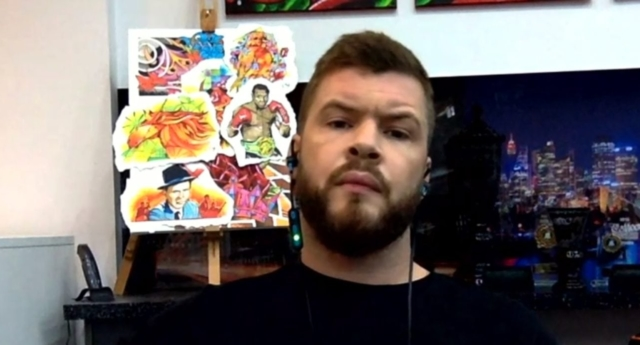Tattoo parlour owner who refused to serve HIV-positive man said he didn’t want to risk spreading the virus
Daniel Weston appeared on the Victoria Derbyshire Show to defend his decision
By Steve Brown

The owner of a tattoo parlour who refused to serve a man who is HIV-positive didn’t want to take the risk of spreading the virus.
George Westwood, 19, was left shocked and insulted when he went to the Vida Loca studio in Bolton to get a tattoo representing his journey with HIV but after telling the business after paying his deposit, they refused to serve him.
And recently owner Daniel Wetson said he supported the tattooist’s decision not to tattoo Westwood saying they don’t have insurance to ink someone who is HIV-positive.
However now, while appearing on the Victoria Derbyshire Show today (May 31), the tattooist revealed he wouldn’t have done it even if he was insured.

He said: “My job as the owner is to look after the health and safety before anything, the safety of my staff, the customer and myself.
“My personal opinion is that, even if I was insured, I personally wouldn’t want to do it, because there still is a risk.
“Why take a chance of a risk and spreading the virus? As a society we’re trying to reduce the risk… there’s always risk.
“It’s impossible to 100 per cent eradicate the risk. I’ve been a tattoo artist for 14 year and over the 14 years I’ve caught myself two or three times with a needle.
“The chances of me catching myself might be very slim but you can’t say that.”
Deborah Gold, of the National Aids Trust, pointed out that people with undetectable viral loads cannot pass on the virus and said it came down to the lack of information and stigma around HIV.
She said: “There is no risk. There has never been a case of HIV being passed on through a tattoo parlour.

“The vast majority of people, 94 per cent of people who know they have HIV, can’t pass HIV on anyway because their viral load is suppressed.
“They have an undetectable viral load, they can’t pass it on. Any risk that existed would be from people they don’t know they have HIV, which is why all tattoo parlours have universal precautions.
“If this tattoo parlour has good hygiene practices, they’re using gloves, they are using single-use needles and sterilising their equipment, then there is no risk.
“This comes down to a case of lack of information and stigma and discrimination.
“We do hear of these cases every so often from tattoo parlours, but usually when people find out the information they realise they’re wrong and they’re happy to go ahead and resolve it.
“Under the Equality Act 2010, discriminating against someone with HIV is illegal. An insurance company must be following the law, therefore if the insurance company isn’t willing to cover someone, isn’t the insurance company also breaking the law?”
